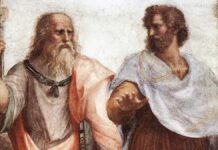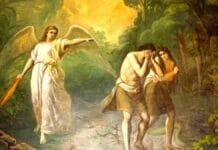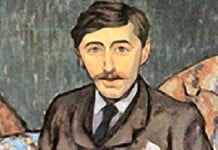Aristophanes (c. 446 BCE – c. 386 BCE) is regarded as one of the greatest playwrights of ancient Greece and the father of Classical Comedy. He lived at a time marked by political strife, social upheaval, and the cultural flourishing of Athens. His plays often reflect the tensions of the period, including the Peloponnesian War, the impact of democracy, and the role of women in society. This context is crucial for understanding the themes and styles present in his works. His works are pivotal in the history of theatre and provide insights into the social and political landscape of ancient Athens.
Aristophanes’ works exemplify the genre known as Old Comedy, which combined sharp political satire, bawdy humour, and fantastical scenarios to entertain and critique society. Aristophanes’ influence on comedy and dramatic literature has been profound, shaping how humour and satire reflect and critique human behaviour, politics, and culture.
Characteristics of Aristophanes’ Comedy
Political Satire
Aristophanes is renowned for his sharp political commentary. He used humour to critique contemporary figures, including politicians like Cleon and Socrates. His plays often included exaggerated portrayals and absurd scenarios that highlighted the follies of those in power.
Social Commentary
Beyond politics, Aristophanes addressed social issues, including gender roles, war, and morality. For instance, in Lysistrata, women take control of the narrative, using their sexuality as a weapon against war, thus challenging traditional gender norms.
Use of Farce and Satire
His comedic style combines farce, slapstick humour, and witty dialogue. The absurdity of the situations, such as in The Clouds, where Socrates is depicted as a frivolous philosopher, serves to entertain while also provoking thought.
Exaggeration and Absurdity
Aristophanes used fantastical plots and outrageous scenarios to highlight the absurdities of real-life issues. For instance, in The Birds, characters create a utopian city in the sky, parodying human ambition and governance.
Chorus and Music
The chorus plays a crucial role in Aristophanes’ works, often providing commentary on the action and engaging with the audience. Incorporating music and dance enhanced the comedic effect and drew the audience into the performance.
Fantasy and Mythology
Aristophanes frequently employed fantastical elements and mythological references. Plays like The Frogs featured gods and mythological figures in humorous situations, blurring the lines between reality and fantasy.
Satirical Themes
Aristophanes explored many themes, often intertwining humour with critical commentary.
War and Peace
In Lysistrata, Aristophanes portrays women withholding intimacy from their husbands to force them into negotiating peace during the Peloponnesian War. The play blends comedy with a powerful anti-war message.
Philosophy and Intellectualism
In The Clouds, Aristophanes satirises Socrates and the Sophists, poking fun at philosophical debates and their detachment from practical concerns.
Social Issues
He addressed themes of gender roles, class struggles, and the morality of his time, using humour to provoke thought and debate.
Artistic Innovation
Aristophanes pioneered comedic techniques and styles that continue to influence theatre and literature.
Blending Comedy with Seriousness
While primarily humorous, his plays often carried deeper meanings and critiques, elevating comedy to an art form capable of intellectual engagement.
Linguistic Playfulness
He had a masterful command of Greek, employing puns, wordplay, and inventive insults that delighted audiences.
Breaking the Fourth Wall
Aristophanes often involved the audience directly, blurring the line between performers and viewers, a technique that modern playwrights and comedians still use.
Key Works
Lysistrata
This play features women who withhold sexual relations from their husbands to force them to end the war. It cleverly critiques the absurdity of war and highlights female agency.
The Clouds
A satire of Athenian philosophers, particularly Socrates, this play mocks intellectual pretensions and explores the conflict between traditional values and new ideas.
The Frogs
A meta-theatrical comedy that critiques the state of Athenian drama, incorporating humour and parody to discuss the value of poets and playwrights.
Peace
This play advocates for peace through comedic means, showcasing the absurdities of war and the longing for a return to prosperity.
Lasting Influence
Cultural Impact
Aristophanes’ works provide invaluable insights into the politics, culture, and society of Classical Athens. They serve as historical documents reflecting the anxieties and aspirations of his time.
Foundation for Comedy
His legacy influenced Roman comedy writers like Plautus and Terence and later Renaissance dramatists like Shakespeare. His use of satire and farce set the groundwork for modern comedic forms, including political satire and parody.
Aristophanes’ influence extends beyond his lifetime, shaping the development of comedy in Western literature. His integration of political and social commentary into humorous narratives set a precedent for future playwrights, including Shakespeare, Molière, and modern comedic writers. The themes and techniques he employed continue to resonate in contemporary theatre and film, illustrating the enduring power of comedy as a tool for critique and reflection.
Aristophanes was more than just a playwright; he was a cultural commentator and a bold satirist who used comedy as a tool to question and critique society. His innovative approach to humour and his fearless engagement with serious issues set him apart as a pioneer of classical comedy. Even today, Aristophanes’ works resonate, reminding us of the timeless power of satire and laughter in addressing human concerns.





























